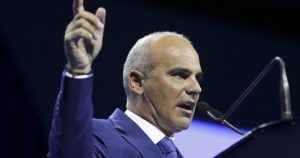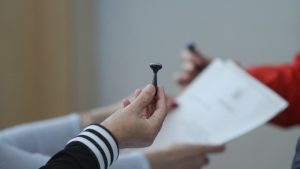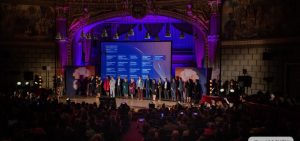
Choosing between Al Gore and Bush, the Americans chose between two very different leader models.
The good statistics in US show that the electoral competition for the White House this year is tougher than ever in the last 40 years. The two main candidates – Albert Arnold Gore Jr. and George W. Bush – were, in turn, leader of the polls, but neither managed to make the hit so that he could distance.
The close competition made that, during the campaign, every detail became relevant. This is about biographic details, first of all. The "Lewinsky accident" in Clinton’s biography determined the focusing of the public attention on the two candidates’ past, so that any element that could lead to a certain future behavior be found out.
Bush’s and Gore’s lives are like some shop windows for the Americans. Anyone in US can tell at least one story from the biography of the Republican or of the Democratic candidate. And, in order to already draw a conclusion, this characteristic of the campaign paradoxically translated into an advantage for Bush, though the latter had more details in his past that he should have been afraid of. Bush’s sins (the drinking bouts in his youth, for instance) and the honesty with which he admitted them made him more "human" for the public opinion, comparing to Al Gore’s "unnatural", recherché spatial behavior.
The American electoral confrontation is more a confrontation between personalities than one between programs. The electorate wonders more how the candidates are than what politics they intend to apply. This happens not because the Americans are exceedingly interested in chat and in epic threads, but because they draw out of the candidates’ behavior data about the way they would behave as leaders and their capacity to represent the American dream human models.
Finding out the "leadership" style is one of the greatest stakes of the biographic exploration. The questions in the backstage about the way in which the candidates take decisions in general and in unexpected circumstances, about their behavior working in team, about their leisure time led the American press to very interesting results.
As for Al Gore, the public found out that he takes decisions all aware and after minute calculations (with which he spends his spare time). Comparing to the Democratic candidate, Bush seems to be frivolous and superficial. He doesn’t like long lasting meetings, he gets bored quickly and he let his collaborators to offer him solutions among which he could rapidly chose. Thus, Bush seems more effective, Al Gore more thorough. The former is suitable for the crisis moments, the latter for the current politics. The Republican insists more on the idea of team, the democratic is proud of not being dependent on the others. All of a sudden, the roles invert. Al Gore seems to be the effective one, as he can take decisions by himself and Bush is the one who depends on the specialized advice. The ambition to filter everything and the vain scrupulosity determines that Al Gore have collaboration problems. His adversaries notice that since 1999 he had changed three campaign directors and that he rallied around himself strangers, while Bush always had the same team, with whom he had an excellent collaboration. To Al Gore’s misanthropy, Bush replies with trust in people. Bush seems to be a negotiator able to survive in a complicated political environment. In comparison, Al Gore seems a rigid character. He is saved by his extraordinary skill in the administration field. Bush says Gore is not competent but bureaucrat. But the Republican seems to be a neophyte of administration. Al Gore talks a little too pretentiously, but wag Bush’s trueborn style of talking often provokes embarrassing situations.
Eventually, the two candidates’ programs also transmit behavior models. Bush asks the person to solve his problems by himself, Al Gore assures him of the State’s help. The Democratic candidate is ready to intervene from above, the Republican one let the initiative to come from below. No matter what the subject might be, delicate economic or environment problems, education or health, Al Gore talks about the effectiveness of the of the government and Bush talks about the effectiveness of the individual.
By the agency of these elections, we’ll find out whether the US wants to be cautious and rational like Al Gore or spontaneous and decided like Bush.
(Adrian CIOFLANCA)






















